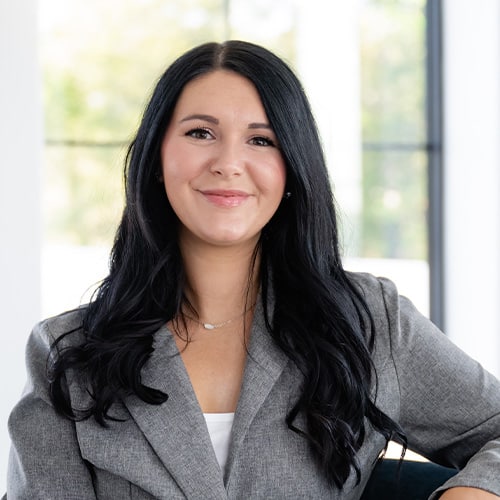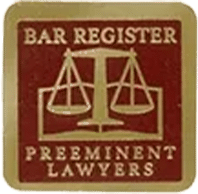
No, Oklahoma is not a no-fault state. It is an at-fault state. What this means is that the at-fault party is responsible, financially, for any property damages and/or injuries suffered as a result of the accident. Please note, though, that Oklahoma is a comparative negligence state.
A car accident can leave you with painful physical injuries and emotional trauma. It can also leave you with a major financial headache. This is especially true if your car is totaled, you need extensive and costly medical treatment, and your injuries prevent you from being able to go back to work for a long period of time – if at all.
To cover these losses, you will turn to auto insurance. Whether you turn first to your own auto insurance coverage or the other driver’s insurance will depend on the law in your state. In a “no-fault” state, your first option would be to file a claim with your own insurer. However, in an “at-fault” state such as Oklahoma, your first move typically would be to file a claim with the at-fault driver’s insurer.
Here, we discuss the differences between “no-fault” and “at-fault” states and the pros and cons of each system. We also discuss what you should do to pursue damages in an “at-fault” state like Oklahoma as well as the assistance that an experienced car accident attorney from Edwards & Patterson Law can provide to you after a crash in Tulsa, McAlester or surrounding areas.

Hurt in A Car Accident?
Contact us today for your free & confidential case review. Our team will help you get the compensation that you deserve.
How Do Car Accident Claims Work in an ‘At-Fault’ State?
An “at-fault” state follows a traditional system. Simply put: The driver who is at fault for a crash must pay for any property damage or bodily injuries that the driver causes. So, if a negligent driver hits you, and your car needs repairs or replacement, or if you face damages such as medical bills, lost income and pain, and suffering, you would first file a claim through the at-fault driver’s auto insurance liability coverage.
Oklahoma is a good example of an at-fault state. In our state, you must carry certain minimum amounts of liability coverage or coverage which pays for the harm that you cause others to suffer in an auto accident. In Oklahoma, the minimum amounts of liability coverage that drivers must carry are:
- $25,000 for bodily injury or death per person
- $50,000 for bodily injury or death per accident (two or more persons)
- $25,000 for property damage per accident.
In our state, you would file a claim through the at-fault driver’s liability insurance. You would turn to your own auto insurance coverage only if:
- The other driver lacked liability insurance or was a hit-and-run driver (uninsured motorist coverage, or UM)
- The other driver’s insurance failed to cover all of your losses (underinsured motorist coverage, or UIM).
To recover damages in Oklahoma through a liability, UM or UIM claim, you would need to establish that the other driver was at fault. If you shared fault, then you would need to show that the other driver’s fault was “of greater degree” than your own. In other words, as long as you were less than 50 percent at fault for the crash, you could still recover damages. However, your damages would be reduced according to the percentage of fault assigned to you.
One of the pros of a fault-based system like the one in Oklahoma is that it holds careless and reckless drivers accountable for their actions. However, one of the cons is that establishing fault can often be a challenging task.
Even in an “at-fault” state like Oklahoma, you may file certain types of claims with your own insurance company first because it can speed up the process. For instance, you may have collision coverage on your vehicle which will cover the repair or replacement of your car, regardless of who was at fault. So, if the other driver denies fault, you may elect to file a collision claim with your own insurer.
How Do Car Accident Claims Work in a ‘No-Fault’ State?
“No-fault” systems represent a more modern approach to dealing with financial responsibility after a car accident. In a state that follows this system, drivers typically must carry both liability insurance and what is called “personal injury protection” (PIP) coverage. If another driver hits you in this type of state, then your first option would be to file a claim with your own insurer for PIP benefits. New York, New Jersey, and Florida are examples of “no-fault” states.
You can recover PIP benefits without the need to establish that another driver was at fault. That is one of the pros of a “no-fault” system. However, these systems also have many cons. For instance, in a “no-fault” state, you may still need to file a separate property damage claim in order to recover compensation for vehicle repair or replacement from the other driver.
Also, in a “no-fault” state, the amount of PIP coverage available to you may be limited. It may cover only economic losses such as medical bills and lost wages. In order to recover non-economic damages such as pain and suffering, you may still need to file a claim against the at-fault driver. Even then, you may be eligible to recover non-economic damages only if you have suffered injuries that meet a “serious injury threshold” such as one that results in permanent loss of use of a body part. Indeed, establishing your eligibility for pain and suffering damages in these states can be highly challenging.

Hurt in A Car Accident?
Contact us today for your free & confidential case review. Our team will help you get the compensation that you deserve.
How Do You Recover Damages after an Oklahoma Car Accident?
In an “at-fault” state like Oklahoma, you should seek help from an experienced auto accident lawyer as soon as possible after a crash. You should not give a statement to the other driver’s insurance company or accept a settlement offer until you talk with a lawyer first. In fact, once you hire a lawyer, the lawyer can take over all communication with the insurance company while you focus on your health.
At Edwards & Patterson Law, we will launch an immediate investigation of your car accident in order to determine who was really at fault. Because of our deep background in this area of the law, we will know how to quickly preserve, gather and analyze evidence that can establish fault. We may also consult with experts in areas such as accident reconstruction and life-care planning in order to establish fault and the nature and extent of the injuries you have suffered.
We will follow up by seeking compensation from all responsible parties and their insurance companies. We will also explore all other options available to you, which could include filing a claim with your own insurance company. The bottom line: We want you to recover maximum compensation. So, we will leave no stone unturned.
Is There a Time Limit for Filing a Car Accident Claim in Oklahoma?
Yes, there is. That time limit, known as the Oklahoma statute of limitations, is two years from the date of the accident. While two years may seem like a long time, it can go by quickly. Our car accident lawyers will be doing research, interviewing witnesses, and more during that time. So, if you are considering a personal injury lawsuit, please do not delay. Contact us soon.
Our Oklahoma Car Accident Attorneys Can Help You Today
If you have lost a loved one or suffered serious injuries in a car crash in Tulsa, McAlester, or surrounding communities in Oklahoma, make Edwards & Patterson Law your first call. We will provide a free case review, and we will charge you nothing unless we recover compensation for you. Call or reach us online now to learn more.
Visit Our Car Accident Injury Law Offices
Last updated Wednesday, December 4th, 2024














